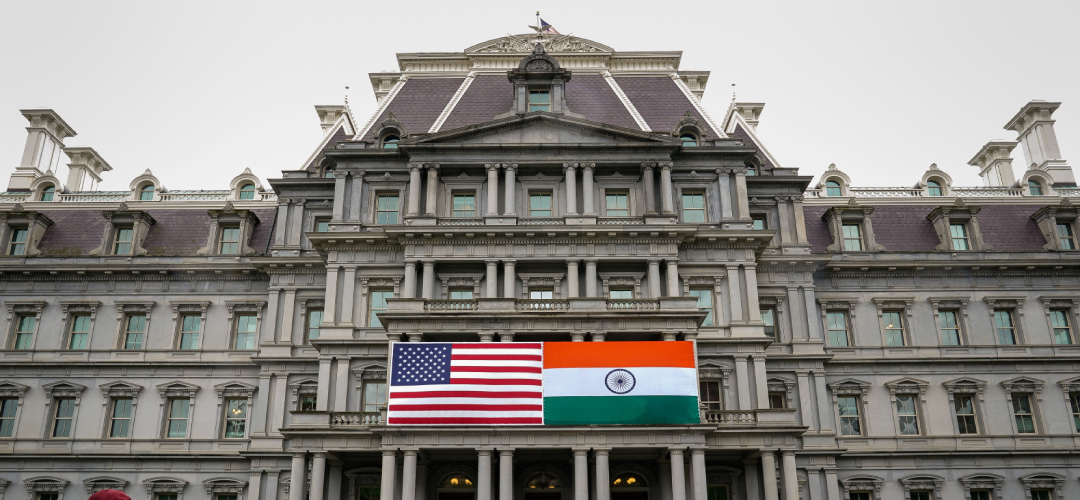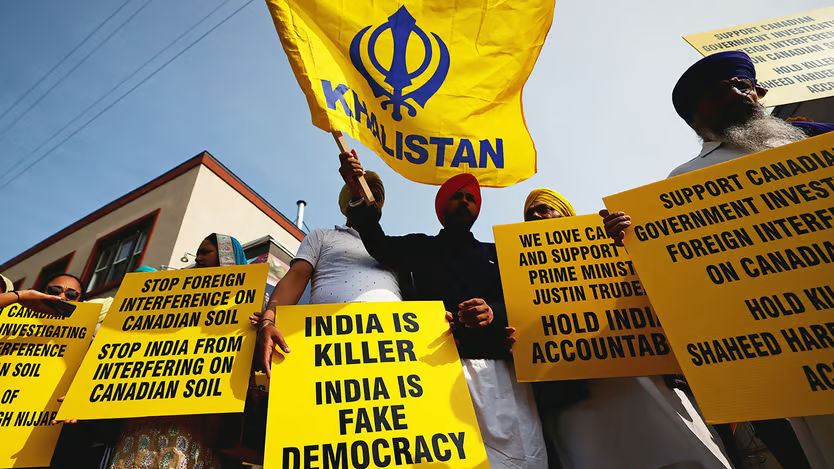An Indian Whodunnit ?
December 23, 2023 | Expert Insights

Recently, an Indian man was arrested in the Czech Republic in an alleged conspiracy to murder a Sikh separatist in the U.S. Federal prosecutors in the U.S. have charged this man with working with an Indian government official. Coming in the wake of an alleged hit on a Canadian-Sikh separatist leader, Nijjar, earlier this year in Canada, the fresh allegations have raised many eyebrows in India and internationally.
Unlike the Canadian allegations which came like a bolt from the blue but without accompanying irrefutable evidence, this time Indian response has been much more conciliatory in tone. Speaking to the Indian media, External Affairs Minister S Jaishankar clarified that “the two issues are not necessarily the same, " adding that “the Americans told us some specific things."
The Indian government has declared that it is willing to cooperate with America and any other country to resolve this issue.
Background
Extra-territorial assassination attempts are not a new phenomenon. Many countries are guilty of carrying out such activities. These include both Western and non-Western countries. Most such actions are covert and deniable in nature.
Today, terrorism has become a global phenomenon. Terrorists often hide in particular countries where they think that they can have a safe haven. From here, they carry out their incendiary propaganda against their country of origin and, worse, plot terrorist acts like the 1985 bombing of the Air India flight from Canada, which vanished the radar over mid-ocean, killing all on board. This gruesome terrorist act has been attributed mainly to the Canada-based Sikh terror outfits that continue to thrive in Northern America and the UK. One man’s terrorist has always been another man’s freedom fighter, and under the liberal perspective of Western democracies, most such radical outfits are tolerated as long as they do not indulge in overt terror acts on home grounds.
To make matters worse for targeted countries like India, extradition treaties usually do not exist between the two countries concerned here. Even when there is an extradition treaty, it is still a complicated process. There are generally political sensitivities on both sides.
This is what has happened between India and those Western countries which have harboured Sikh separatists. Canada has been the most prominent in this regard. The UK also has had its relationship with India tested on this. Indo-US relations have normally not been affected by the Khalistan issue. The United States has increasingly come to see eye-to-eye with India on the nefarious activities of Pakistani-backed terrorism. Now, this latest indictment changes this calculation. Those in the West who were critical of India's human rights record feel vindicated, and India's enemies have lost no time in highlighting this as another proof of Indian "intolerance." Such utterances naturally resonate in liberal Western countries with scant knowledge of the real issues involved.

Analysis
The allegations by themselves are not important. The fact that they can be proved or disproved is immaterial in the larger scheme of things. What matters here are the optics. India’s international image as a rising peaceful power that believes in the rule of law has taken a hit. This has to be restored at the earliest and damage control measures instituted.
The question is one of soft power. All countries have some kind of dark skeletons in their human rights record. The difference comes in how they try to present this record. Along with this there is also a lot of Western hypocrisy involved here. The West has never acknowledged the seriousness of the Khalistan problem for India. While on their part, Western democracies have centuries of excesses recorded in their history, their recent interventions in the Middle East and Asia have been equally besmirched. However, the notion of extra-territorial immunity goes hand in hand with all such adventures.
As regards extra judicial killings of dissenters/ terror perpetrators, Israel leads the world with little international recriminations; in fact, every Israeli strike earns them open admiration, even if innocents become collateral damage. A small country, it justifies its aggressive stance as critical for its survival as a state. Under attack by a host of terror organisations, the neutralisation of organisational heads is considered valid targets irrespective of their location.
However, while such acts raise national morale in beleaguered nations like Israel, in the long run, they prove counterproductive- terror organisations instantly grow a new head like Medusa. The assassinated leader simply became a martyr. This martyrdom attracted recruits to the cause.
The allegations should be a cause of concern for the Indian government. No matter what the double standards of the American government, the Indo-US relationship is too important to be derailed by a single issue. Both America and India need each other at the moment. This convergence of geo-strategic interests between both sides is growing by the day. Indian Americans are a huge part of the American population. They are playing a key role in strengthening the partnership between the two countries.
So, the Indian government has to do some damage control. Jingoistic nationalism is not going to work out in this case. Cool heads must prevail at the Ministry of External Affairs in New Delhi.
The accused in question, Nikhil Gupta, has asked the Indian Supreme Court for legal assistance. But the fact that he has been arrested in the Czech Republic makes things complicated. Indian authorities have no legal jurisdiction in that country.
Ultimately, the fraying of the Indo-US relationship will benefit Pakistan and China. They have always sought to create a rift between Washington and New Delhi. Beijing and Islamabad see a golden opportunity here. India must not give them the chance to take full advantage of this situation.
It has taken decades to build up the Indo-US relationship to its present level of closeness. This could well be the defining relationship of the 21st century. The possibilities for this relationship are endless. A lot of hope is pinned on this valuable partnership. This incident could turn out to be a small blip in the larger scheme of things or derail the entire relationship; how both sides handle it will be the key.
Assessment
- It has taken a lot of hard work and time to bring India and the U.S. together. A single incident should not destroy all this.
- The enemies of both India and the US would like to see this relationship overturned. They would like to make India a pariah state in the eyes of the West.
- The merit of the case is not the main issue. Instead, how both sides deftly deal with it is the key challenge.








Comments